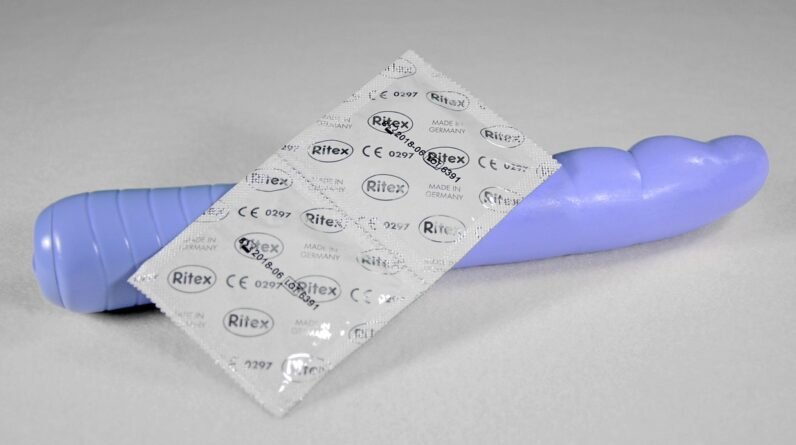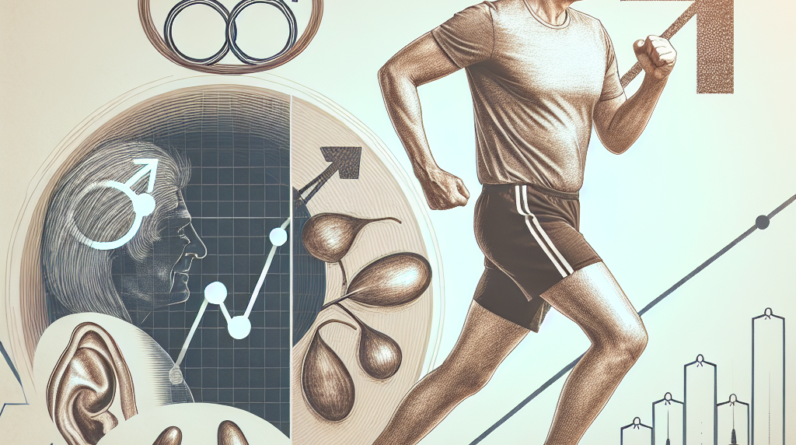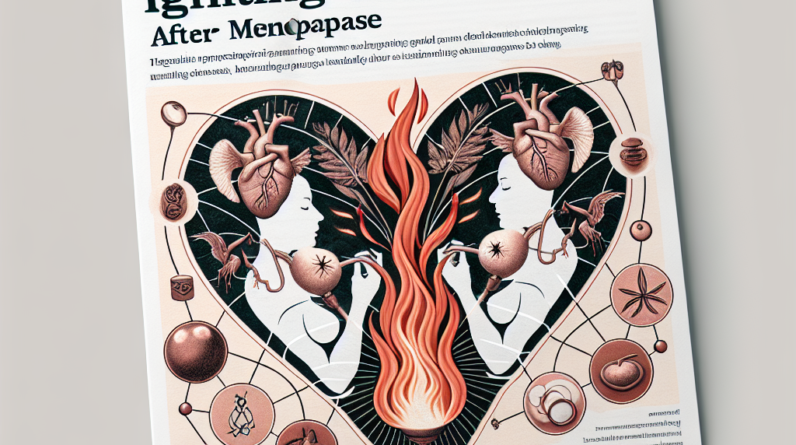
Are you curious about when men start to lose their sex drive? It’s a topic that many people wonder about, as sexual desire can often change as we age. In this article, we will explore when men typically experience a decline in their sex drive. Additionally, we will provide tips on how to maintain a satisfying sex life as you get older. So, if you’ve ever wondered about the factors that can affect a man’s sexual desire, keep reading to find out more!

This image is property of pixabay.com.
Factors That Affect Male Sex Drive
Age
Age is a natural factor that can have a significant impact on male sex drive. As men go through different stages of life, their hormone levels and overall sexual functioning can change. It’s important to understand the various age-related changes that can affect male sex drive.
Hormonal Imbalances
Hormonal imbalances can also play a role in male sex drive. Testosterone is the primary hormone responsible for regulating male sexual desire, and any disruptions in its levels can lead to a decrease in sex drive. Other hormones, such as estrogen and thyroid hormones, can also impact male sex drive when present in abnormal levels.
Medical Conditions
Certain medical conditions can have a direct impact on male sex drive. Conditions such as cardiovascular disease, diabetes, obesity, depression, and anxiety can all contribute to a reduction in sexual desire. The physical and psychological effects of these conditions can affect hormone levels and overall sexual functioning.
Medications
It’s important to be aware that certain medications can potentially decrease male sex drive. Antidepressants, antihypertensive drugs, prostate medications, anti-anxiety medications, and opioid painkillers are examples of medications that may have a side effect of reduced sexual desire. It’s always advisable to consult with a healthcare professional if you suspect that your medication is affecting your sex drive.
Stress and Fatigue
Stress and fatigue are common factors that can impact male sex drive. When you’re under a high level of stress or experiencing chronic fatigue, your body’s energy levels and hormone production may be affected, leading to a decrease in sexual desire. Managing stress and ensuring adequate rest and sleep are crucial for maintaining a healthy sex drive.
Age-related Changes in Male Sex Drive
Puberty and Adolescence
During puberty and adolescence, young men experience a profound increase in their sex drive. This surge in hormones, especially testosterone, contributes to the development of sexual desire, fantasies, and the exploration of sexuality. It’s a period of sexual awakening and discovery.
Prime Adulthood
In prime adulthood, typically between the ages of 20 and 40, men often experience peak levels of sexual desire and energy. Testosterone levels are at their highest during this period, leading to a strong sex drive and overall sexual performance. This age range is often associated with frequent sexual activity and a high degree of sexual satisfaction.
Middle Age
As men enter their 40s and 50s, their sex drive may start to decline gradually. Testosterone levels naturally decrease with age, which can result in a decrease in sexual desire. However, it’s important to note that this decline is gradual and may not be significant enough to cause major disruptions in sexual functioning.
Older Age
In older age, typically beyond the age of 60, many men experience further declines in sex drive. The decrease in testosterone levels becomes more pronounced, and other age-related health issues can contribute to reduced sexual desire. However, it’s important to remember that individual experiences may vary, and maintaining a healthy lifestyle and addressing any underlying medical conditions can help mitigate age-related changes in sex drive.
Common Symptoms of Decreased Sex Drive
Reduced Sexual Thoughts and Fantasies
One of the noticeable symptoms of decreased sex drive is a reduction in sexual thoughts and fantasies. You may find yourself having fewer sexual daydreams or fantasies that were once a common occurrence. This decrease in the frequency of sexual thoughts can be an indication that your sex drive has diminished.
Lack of Interest in Sexual Activities
When your sex drive is decreased, you may notice a lack of interest in engaging in sexual activities. Things that used to arouse you or make you feel excited may no longer have the same effect. This lack of interest can affect both solo sexual activities and those shared with a partner.
Difficulty Achieving or Maintaining Erections
Difficulty achieving or maintaining erections can also be a symptom of decreased sex drive. Reduced blood flow to the penis can make it more challenging to achieve and sustain an erection, which can then lead to a decrease in sexual desire. It’s important to differentiate between difficulties related to sex drive and those related to physical factors like erectile dysfunction.
Decreased Libido
Overall, a lack of libido or reduced sexual desire is the primary symptom of decreased sex drive. You may find that you simply have a lower interest in sex than you used to or that your desire for sexual activity has significantly diminished. This decrease in libido can impact both your own personal satisfaction and your intimate relationships.
The Impact of Hormonal Imbalances on Male Sex Drive
Testosterone Deficiency
Testosterone deficiency, also known as low testosterone or hypogonadism, can significantly impact male sex drive. When testosterone levels are below the normal range, it can result in a decrease in sexual desire, difficulties with erections, and an overall decrease in the quality of sexual experiences. It’s important to consult with a healthcare professional if you suspect you have low testosterone levels.
Estrogen Excess
While estrogen is typically associated with female reproductive health, men also have small amounts of this hormone. When estrogen levels become excessive, it can interfere with the balance of hormones in the body and result in a decrease in male sex drive. Estrogen excess can occur due to certain medical conditions or medications and may require medical intervention.
Thyroid Hormone Imbalances
The thyroid gland plays a crucial role in regulating various bodily functions, including metabolism and energy levels. When there are imbalances in thyroid hormone levels, it can impact male sex drive. Both an overactive thyroid (hyperthyroidism) and an underactive thyroid (hypothyroidism) can lead to decreased sexual desire and overall sexual functioning.
Cortisol Imbalance
Cortisol, often referred to as the stress hormone, can have a negative impact on male sex drive when produced in excess or insufficient amounts. Chronic stress and long-term cortisol imbalances can lead to decreased libido, as the body’s focus shifts away from sexual functions towards survival mechanisms. Managing stress levels and implementing stress management techniques can help rebalance cortisol levels and support a healthy sex drive.

This image is property of pixabay.com.
Medical Conditions That Can Affect Male Sex Drive
Cardiovascular Disease
Cardiovascular diseases such as heart disease, high blood pressure, and atherosclerosis can contribute to a decrease in male sex drive. These conditions affect blood flow throughout the body, including to the genitals, impairing sexual functioning and desire. It is essential to manage cardiovascular health to support and maintain a healthy sex drive.
Diabetes
Diabetes, particularly uncontrolled diabetes, can have a detrimental effect on male sex drive. The condition can damage nerves and blood vessels, leading to erectile dysfunction and decreased sexual desire. Proper diabetes management and maintaining healthy blood sugar levels are crucial to minimize the impact on sexual functioning.
Obesity
Obesity is known to be a contributing factor to various health conditions, including a decrease in male sex drive. Excess weight can disrupt hormone balance, increase estrogen levels, and affect blood flow, all of which can impact sexual desire and performance. Maintaining a healthy weight through proper diet and regular exercise can improve sex drive and overall sexual health.
Depression and Anxiety
Mental health conditions such as depression and anxiety can significantly affect male sex drive. These conditions can lead to decreased libido, difficulties with sexual arousal, and overall decreased satisfaction in sexual experiences. Seeking proper treatment and therapy for depression and anxiety can have a positive impact on sex drive.
Sleep Disorders
Sleep disorders, such as sleep apnea or insomnia, can contribute to a decrease in male sex drive. Lack of quality sleep can interfere with hormone production, increase stress levels, and decrease energy levels, all of which can have a negative impact on sexual desire. Addressing and managing sleep disorders can improve overall sexual functioning and sex drive.
Medications That May Decrease Male Sex Drive
Antidepressants
Certain antidepressant medications, such as selective serotonin reuptake inhibitors (SSRIs), can have a side effect of reduced sex drive. These medications work by increasing serotonin levels, which can affect various aspects of sexual functioning. It’s important to have open communication with your healthcare provider if you experience any negative effects on your sex drive due to antidepressant use.
Antihypertensive Drugs
Some antihypertensive medications, used to treat high blood pressure, can contribute to a decrease in male sex drive. Beta-blockers and certain diuretics are known to have a potential side effect of reduced libido. Discussing potential alternatives or adjusting the dosage with your healthcare provider may help alleviate this side effect.
Prostate Medications
Medications used to treat prostate-related conditions, such as finasteride or dutasteride, may lead to a decrease in male sex drive. These medications work by inhibiting the production of certain hormones, including dihydrotestosterone (DHT), which can affect sexual desire. It’s important to discuss potential side effects with your healthcare provider if you are prescribed prostate medications.
Anti-anxiety Medications
Some anti-anxiety medications, including benzodiazepines, can have a suppressive effect on male sex drive. These medications work by dampening the central nervous system and can impact sexual desire and arousal. Discussing concerns with your healthcare provider and exploring alternative treatment options may be beneficial if you experience decreased sex drive due to anti-anxiety medications.
Opioid Painkillers
Opioid painkillers, such as codeine, oxycodone, or morphine, can have an impact on male sex drive. These medications can cause hormone imbalances and affect brain chemistry, leading to a decrease in sexual desire. If you are taking opioid painkillers and notice a significant decrease in sex drive, consult with your healthcare provider to discuss potential options.

This image is property of pixabay.com.
Psychological Factors Influencing Male Sex Drive
Stress
Stress can have a profound effect on male sex drive. When you’re under constant stress, your body’s stress response system is constantly activated, diverting resources away from sexual functions. This can lead to a decrease in sexual desire and performance. Implementing stress management techniques, such as exercise, meditation, or therapy, can help alleviate the impact of stress on sex drive.
Depression
Depression can significantly impact male sex drive. Feelings of sadness, hopelessness, and a lack of interest in activities can extend to a decreased desire for sex. Depression can also result in changes in brain chemistry, affecting hormone production and overall sexual functioning. Seeking treatment for depression is essential in addressing the impact on sex drive.
Anxiety
Anxiety, like depression, can have a negative impact on male sex drive. Feelings of worry, nervousness, and stress can make it difficult to focus on sexual thoughts and experiences. Anxiety can also trigger physiological responses that interfere with sexual functioning. Managing anxiety through therapy, medication, or stress reduction techniques can help improve sex drive.
Relationship Issues
Problems within a relationship can also affect male sex drive. Difficulties with communication, unresolved conflicts, or emotional distance can lead to decreased sexual desire. It’s essential to address and work through relationship issues as they arise to maintain a healthy and fulfilling sex life.
Lifestyle Factors That Can Affect Male Sex Drive
Poor Diet and Nutrition
A poor diet and inadequate nutrition can contribute to a decrease in male sex drive. Nutrient deficiencies, especially in vitamins and minerals, can impair hormone production and overall sexual functioning. Eating a balanced diet, rich in fruits, vegetables, lean proteins, and whole grains, can support optimal sexual health and libido.
Lack of Exercise
Regular physical activity is not only beneficial for overall health but also for male sex drive. Exercise helps improve blood flow, boost energy levels, and support hormone production, all of which can positively impact sexual desire. Engaging in moderate-intensity exercise for at least 150 minutes per week can help maintain a healthy sex drive.
Smoking and Alcohol Consumption
Tobacco use and excessive alcohol consumption can have a significant negative impact on male sex drive. Both smoking and heavy drinking can impair blood flow to the genitals, affect hormone balance, and decrease sexual desire. Quitting smoking and moderating alcohol intake are crucial steps in improving sex drive and overall sexual health.
Sleep Deprivation
Lack of quality sleep or chronic sleep deprivation can take a toll on male sex drive. Sleep plays a vital role in hormone regulation, energy levels, and overall well-being. When you’re consistently not getting enough restful sleep, it can lead to decreased sexual desire. Prioritizing sleep hygiene and implementing strategies to improve sleep quality can help support a healthy sex drive.

Addressing and Managing Decreased Sex Drive
Consulting a Healthcare Professional
If you’re experiencing a decrease in sex drive, it’s important to consult with a healthcare professional. They can help determine if any underlying medical conditions, hormonal imbalances, or medications may be contributing to the issue. Additionally, they can provide guidance on potential treatment options and lifestyle modifications to improve sex drive.
Identifying and Treating Underlying Medical Conditions
Addressing underlying medical conditions that can impact male sex drive is crucial. Cardiovascular diseases, diabetes, obesity, and mental health conditions should be properly diagnosed and treated. Working with healthcare professionals and implementing appropriate treatment plans can help improve overall sexual functioning.
Adjusting Medications
If medications are suspected to be affecting sex drive, it’s important to discuss potential alternatives or adjustments with a healthcare professional. They can evaluate the potential impact on sexual desire and explore other treatment options that may have fewer side effects or work with adjusting dosages to minimize the impact on sex drive.
Implementing Stress Management Techniques
Managing stress levels is key in supporting a healthy sex drive. Engaging in stress reduction techniques such as exercise, relaxation exercises, mindfulness, therapy, or hobbies can help alleviate stress and its impact on sexual desire. Finding healthy coping mechanisms for stress is essential for maintaining a satisfying sex life.
Improving Lifestyle Habits
Adopting healthy lifestyle habits can have a positive impact on male sex drive. Eating a balanced diet, engaging in regular exercise, avoiding tobacco use, moderating alcohol consumption, and prioritizing sleep all contribute to overall sexual health. Making proactive choices to support a healthy lifestyle can help maintain a strong sex drive.
Conclusion
Male sex drive can be influenced by a variety of factors, including age, hormonal imbalances, medical conditions, medications, stress, and lifestyle habits. Understanding the different stages of sexual development and the impact of age on sex drive is essential. Recognizing the symptoms of decreased sex drive and addressing potential underlying causes is crucial for maintaining a healthy and satisfying sex life. Consulting with a healthcare professional, identifying and treating any medical conditions, adjusting medications if necessary, implementing stress management techniques, and improving lifestyle habits are all proactive steps to support optimal sexual desire and overall sexual health.






